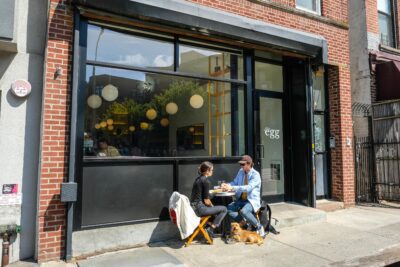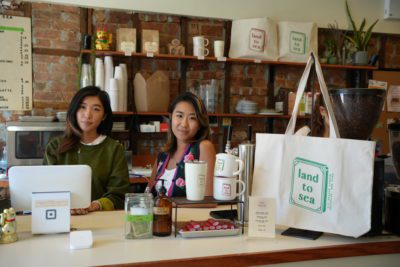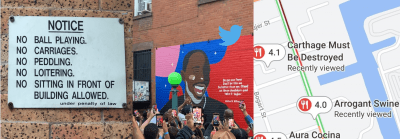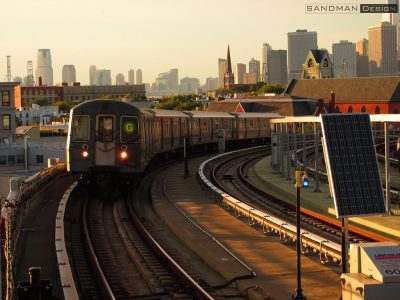A flight at Sake Studies Center (courtesy Brooklyn Kura)
The Sake Studies Center wants to change how Americans drink the Japanese spirit
With virtual and in-person classes, tasting menus and more, the center aims to educate while you sip
For many New Yorkers, the experience of drinking sake is relegated to memorable nights with friends spent eating endless sushi rolls or spending hours in karaoke rooms at local Japanese restaurants.
The folks behind the Sake Studies Center, a relatively new education hub that opened inside Brooklyn Kura at Industry City at the end of 2023, are hoping to change that through teaching.
“Fundamentally, sake is delicious and made by exceptional craftspeople,” says Brian Polen, co-founder and president at Brooklyn Kura. “It has a place outside of the context of a corner sushi shop.”
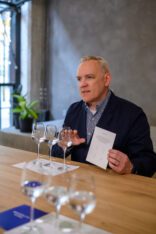
The center’s director of education, Timothy Sullivan (Brooklyn Kura)
Although brewing sake since 2016, Brooklyn Kura has recently launched a new taproom and brewery in Industry City, coinciding with the launch of the Sake Center, which is dedicated to educating both industry people and consumers about Japanese rice wine through online courses and in-person events. This month alone, the center has launched a new sake and cheese pairing experience alongside novel weekend classes (virtual and in person) that tackle a variety of related topics.
“Fundamentally, we want people to be more comfortable ordering sake, we want professionals to be more comfortable selling it and we want brewers in the U.S.A who are interested in making it to be more confident about producing it,” says Polen.
Given the city’s (arguably overly enthusiastic) love of spirits and the plethora of Japanese-inspired businesses around town, the lack of knowledge surrounding sake culture and etiquette is pretty surprising. “I don’t know why the trend hasn’t exploded, honestly,” says Polen. “But that’s why we are excited about the business.”
Which is not to say Brooklyn isn’t having a little moment: Kato Sake Works brewery, a similar concept minus the education center, opened in 2020 to much fanfare in Bushwick.
Buzzy Sklar, CEO of production company Kintsugi Sake, also believes it’s a mini-trend that’s about to accelerate.
“We are seeing a huge surge in interest both drinking and education-wise,” he says. “The whole thing is that people don’t know how to tell good sake from bad sake. It’s usually a bottle with Japanese characters and you never remember which one you had. You usually look down a menu and choose one by price.”
Two characteristics of the spirit are what will surely appeal to the American audience: its versatility and low ABV content.
“People with a beer and wine license can still buy sake so it allows them to use it as a base spirit for martinis and margaritas, for example,” says Sklar. “It’s a very versatile drink and the big trend now with the younger generation is wanting to drink something that is as good for them as possible and sake has low ABV.”
And Polen and his team believe that Brooklyn is primed to become a sake hub given an “ethos of craftsmanship, quality, resiliency, density and diversity” that appeals to a client base that cares about the ideal way to consume the Japanese spirit.
For those taking notes at home: it’s chilled, in a wine glass.
You might also like 

















